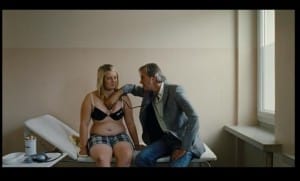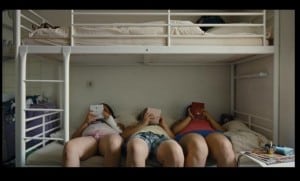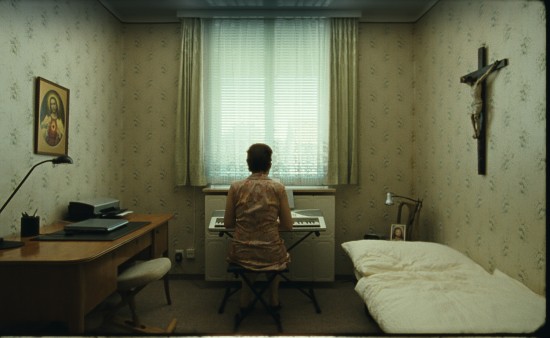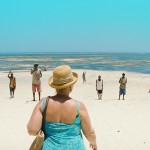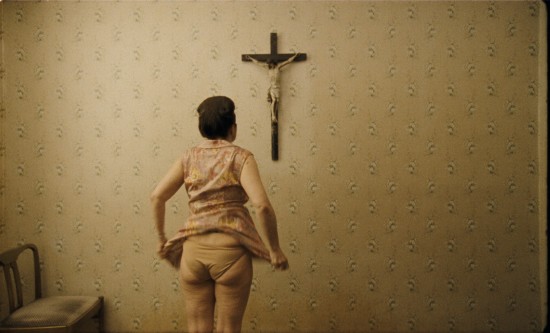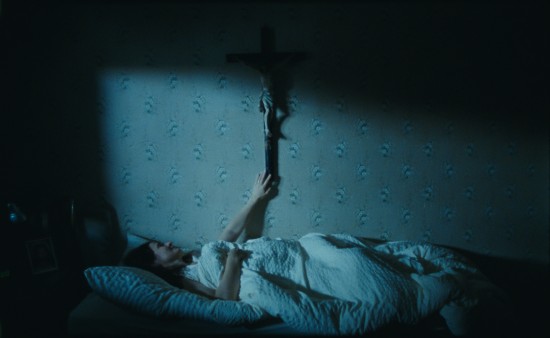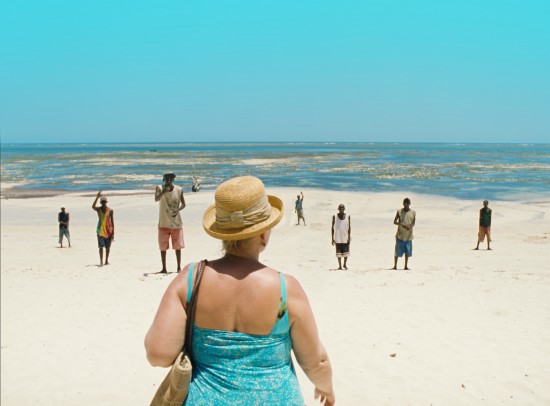Director: Ulrich Seidl
Writers: Ulrich Seidl, Veronika Franz
81min Doc Austria
After exploring the sex lives of a three contemporary women (Love, Hope, Paradise), Austrian maverick, Ulrich Seidl, plumbs the domestic cellars of his homeland for more outrageous material in his latest documentary Im Keller (In The Cellar). A word normally applied to horror film ‘unheimlich’ describes these underground ‘cribs’ that are the total opposite of cosy: translating as ‘uncanny’ but literally meaning ‘unhomely’ – it seems a particularly appropriate way to describe Seidl’s discoveries. The opening sequences make increasingly bewildering viewing, as we meet group of characters who appear only too happy to share with us their unusual habits and hobbies in this subterranean world. With his regular collaborator Veronika Franz, Seidl’s preoccupation with obesity, nudity and S&M goes hand in hand with religious bigotry and undercover Nazis (Hitler was, of course, Austrian) – all are alive and kicking in the homes of everyday Austrian folk.
Indie and art house audiences with a penchant for the macabre and Seidl’s dark brand of humour will certainly flock to see Im Keller even though it is, in parts, a sight for sore eyes. It certainly proves that in Austria as well as Yorkshire there’s ‘nowt so queer as folk”. One woman hides a series of baby-like dolls in cardboard boxes. As she mollycoddles and soothes them in the basement of the house, her Nazi husband sits upstairs under a prized portrait of Hitler, given as a wedding present: “unwrapping it, I nearly went out of my mind”, he comments with zeal. Another man uses his cellar to house his collection of ‘small game’ trophies (of antilope, kudu etc) and hones his skills at shooting with some target practice and a series of lethal firearms.
As we progress through the ranks of weirdos indulging their obsessions below stairs, Seidl moves onto more x-rated material. A couple who enjoy extreme sexual role-play (BDSM) explain and demonstrate the ethos behind their proclivities: “trust is the most vital element”. Another woman takes us through the bondage routines involved in being a sexual masochist – it emerges, ironically, that during the day she works in a centre for abused woman. All this is captured through Martin Gschlacht’s cold-eyed lens, with Seidl’s eerie trademark fixed framing, seen in previous outings. The phrase ‘cognitive dissonance’ springs to mind all through this odd documentary. Seidl’s treatment of his subject-matter is completely dead pan and non-judgemental and the juxtaposition of these grotesque images and the gallows humour will make you squirm in your seats. MT
IM KELLER is showing at the VENICE INTERNATIONAL FILM FESTIVAL from 27 August until 6 September 2014. FOLLOW OUR COVERAGE UNDER THE FESTIVALS BANNER.

